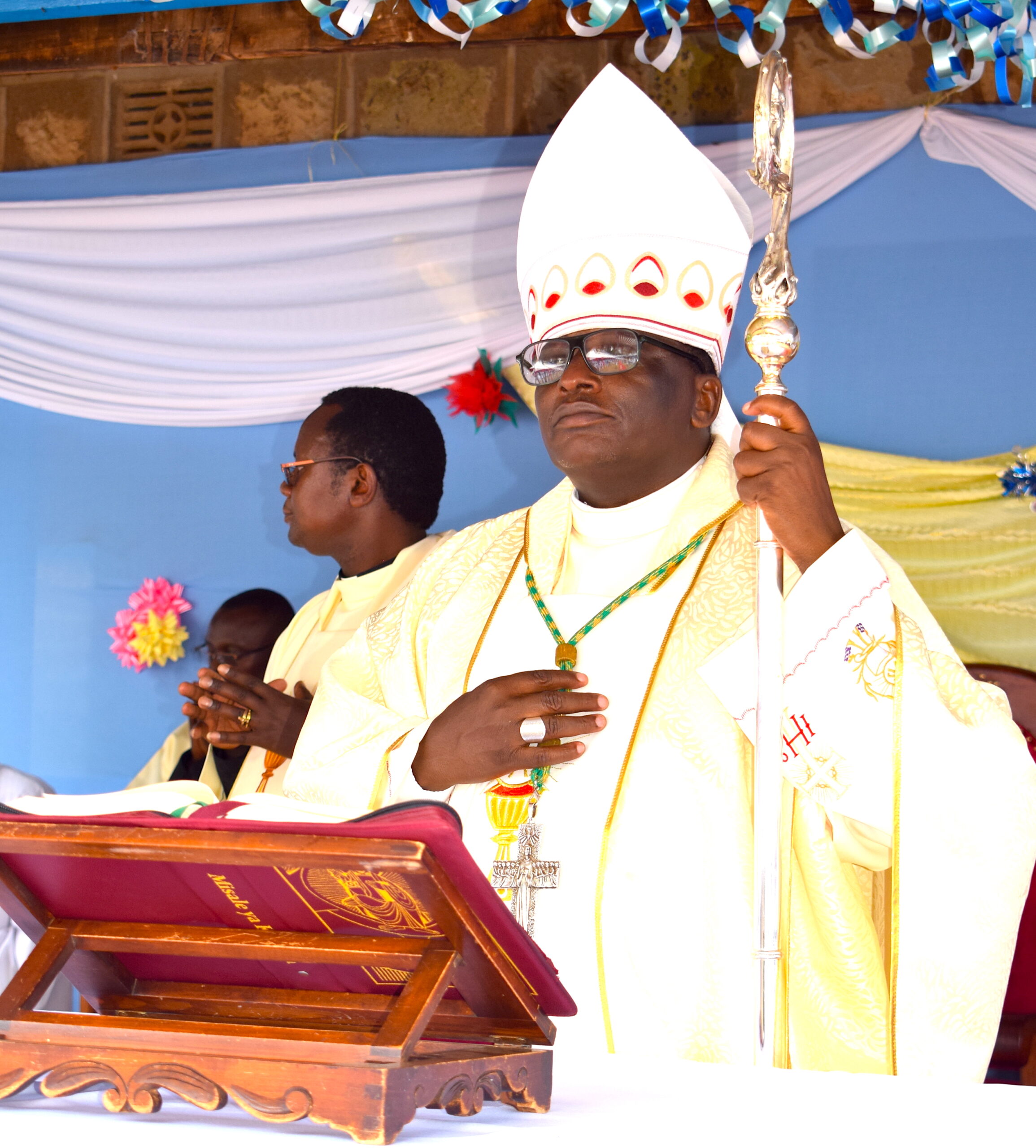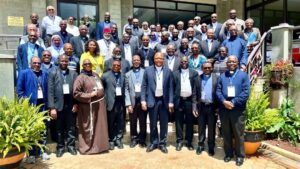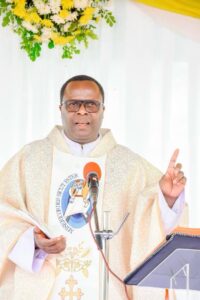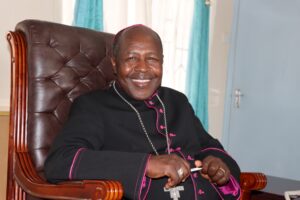KENYA: Catholic Faithful Elated as Pope Francis Erects New Diocese, Appoints Pioneer Shepherd.

Bishop Paul Kariuki at a Past Event.JPG Credit Diocese of Embu
Elizabeth Asasha
The creation of the new Diocese of Wote continues to excite masses in Kenya’s broader Eastern region (Ukambani) as the newly appointed pioneer shepherd vows to walk with the Catholic faithful in the youngest ecclesiastical entity in the country.
In an official communiqué published by L’Osservatore Romano on Saturday, July 22, 2023, at 12:00 p.m. (CEST) and 1:00 p.m. (EAT), His Holiness Pope Francis, carved-out and erected Wote Episcopal See from dismembered territories of the existing Machakos Diocese, making it a suffragan of the Metropolitan See of Nairobi.
During the papal announcement, Pope Francis also designated Rt. Rev. Paul Kariuki Njiru, who has been the bishop of the Catholic Diocese of Embu, as the first bishop of the new diocese, which adds up the total number of dioceses in Kenya to 26.
Speaking exclusively with AMECEA News, Bishop Njiru embraced the Pope’s decision, disclosing that he did not foresee his appointment as the inaugural bishop of the new diocese.
“It came as a surprise; I never anticipated it. Without doubt, the Holy Father is guided by the Holy Spirit, and I am confident that they conducted a thorough background check before making their choice of who would tend to God’s flock in the new diocese.” Said the 60-year-old Kenyan prelate who also serves as Chairman of the Kenya Conference of Catholic Bishops (KCCB) Commission for Education and Religious Education (CERE).
A fortnight before his appointment, His Excellency Archbishop Hubertus Matheus Maria van Megen, the Apostolic Nuncio to Kenya and South Sudan, communicated to Bishop Njiru the intentions of the Holy Father to appoint him as the pioneer bishop of the newly established diocese of Wote.
“I was on a canonical pastoral tour in the parish when I received the communication from the Nuncio. On such visits, I temporarily relocate to the parish and visit the different parts of the diocese spending time with Christian communities in the parishes,” Njiru explained.
Following the administrative adjustments, the Nuncio sent a formal statement to the KCCB, echoing the declaration by the Holy See Press Office in Rome.
The changes have sparked excitement in Makueni County, which was hitherto the only one of the three counties in Ukambani without a Catholic diocese, with the move expected to fortify the church’s foothold in the region. The pioneering Local Ordinary, Njiru, reiterated this credence in his conversation with an AMECEA News correspondent in Kenya.
“It will certainly strengthen our missions in the area because bishops serve a large number of people, and if the population is overwhelmingly large, we may not be able to accord Christians the care and attention they deserve.”
Prior to the erection of the newest Episcopal See, the Catholic Diocese of Machakos, established on May 29, 1969, from Nairobi Archdiocese, spanned through two counties with a population of over 1.5 million Catholic faithful. This, bishop Njiru says, muddles the pastoral work of a prelate which is meant to be strongly perceptible to the people.”
According to the Holy See statistics, the recently erected Kenyan Diocese of Wote measures 8.009 square kilometers in size and is home to 987,653 people, 388,946 of whom are Catholics, making up 39.38 percent of the overall population of the Diocese’s territory.
With 30 years of experience as a priest, 14 years as a Catholic prelate, and the duties incumbent upon him as Shepherd in the new diocese, Bishop Njiru has promised to collaborate with the various Catholic church communities and groups at the grassroots to evangelize using all tools available to support the missions.
“I believe in teamwork and when it comes to shepherding, one cannot shepherd alone; that is why we have different groups besides the religious who play key roles in the church.” He continued, “I like working with clergy, Christians, catechists, and Parish Pastoral Councils (PPCs), which make up the Diocesan Pastoral Council and I consult experts in critical areas where necessary.”
He pledged to work closely with the existing Catholic media firms, highlighting the value of communication as a tool for evangelization and dropping hints about the prospect of setting up a communication medium in the diocese in the future.
Fully cognizant of the mission conferred to him by the Pope, Njiru urged Christians to pray for and support the new diocese as he expressed his enthusiasm to meet the people of Wote, “Beginning a new diocese is not always very easy and we need your prayers and support, I have never been to Wote but I am ready to go there and to work with the people of God.”
Upon his installation, Bishop Njiru would take charge of the new Kenyan Diocese of Wote, which at its inception, according to the July 22 Holy See report, will have 31 Parishes, 90 Diocesan Priests, 9 Religious Priests, 36 Major Seminarians, 732 Catechists, and 200 educational institutions.
Makueni County, which enfolds the new diocese, borders Machakos to the North, Taita Taveta to the South, Kajiado to the West, and Kitui to the East.
The current St. Joseph the Worker Wote Parish will serve as the cathedral for the newly created Catholic Diocese of Wote.


